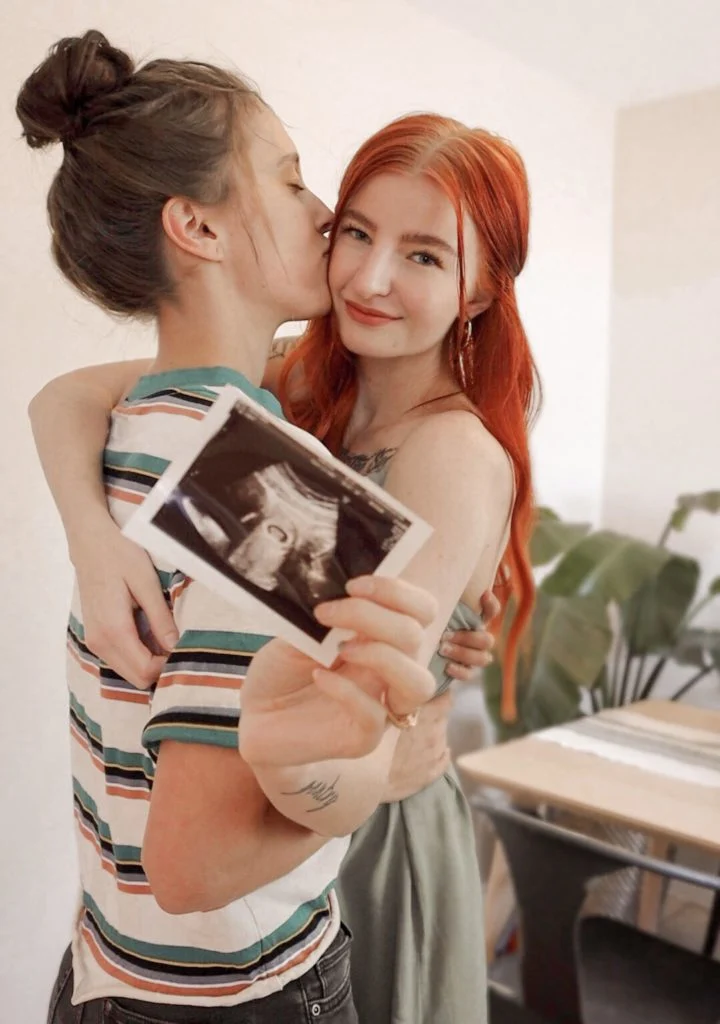I wished for my daughter to be beautiful. I even asked the universe for traits like golden blonde hair, captivating blue or green eyes, a charming smile, and an adorable little nose. I would often rub my belly and softly repeat, “Gwyneth Paltrow.”
Growing up in Southern California, I was surrounded by a sea of blonde-haired beauties. As a first-generation American with a unique mix of European heritage, I carried strong, angular features that often made me feel out of place. Being a tall, dark-haired girl with broad shoulders, I was the odd one out in group photos. I frequently found myself cast as the villain in school plays, teased for my looks, and treated unkindly in the hallways. Those teenage years can be brutal, especially when the standard of beauty in the 90s seemed unreachable. TV stars and models epitomized perfection—perfect noses, luscious lips, slender figures, and long, flowing blonde hair.
After high school, I tried everything to measure up to that ideal and boost my self-esteem. I dyed my hair blonde, embraced a pink wardrobe, and learned to apply self-tanner just right. I slimmed down to a size 4 and sported the gloss that the MAC associate deemed “glamorous.” I attempted to erase the memory of my former self. It wasn’t until my mid-20s that I began to appreciate my unique features. I learned to embrace my perceived “flaws” as part of what makes me, me.
I always envisioned having two kids—a girl and a boy—so when the doctor announced we were having a girl, I was overjoyed. But I was taken aback by the insecurities it stirred within me about my own appearance. During the drive home, I squeezed my husband’s hand and said, “You’re going to be an amazing dad. I hope she’s healthy and strong, and a little troublemaker like you.” He replied, “I hope she’s brave, funny, and looks just like you.” His words ignited a surge of anger in me, and I blurted out, “No, not like me! Please, God, don’t let her look like me!”
Eventually, I felt guilty for being so concerned about my daughter’s looks. To sort through my feelings, I reached out to some of my friends from back home. One admitted she never realized her beauty and often labeled herself “the unattractive one” among our group. Another friend shared her struggle with the pressure to be perfect, driven mad by the constant compliments she received. I began to see that even the most beautiful people can harbor deep insecurities.
Then my wish came true. My daughter is healthy, smart, funny, kind, and a spirited little firecracker. She also has golden blonde hair and the most incredible blue eyes. I adore every part of her, and she doesn’t resemble me at all.
Raising a “pretty girl” will certainly be an adventure. While strangers often stop us to rave about her beauty, I know I’ll need to help her navigate insecurities, self-confidence, and the heartaches that come with growing up. I genuinely believe my daughter is the most beautiful person in the world, inside and out, and I’m determined to help her recognize that beauty as well. She may think, as I once did, that mothers are duty-bound to say such things. I never bought into my own mother’s compliments.
I hope my daughter learns to appreciate the beauty in others and never feels the need to compare herself. I want her to speak up against superficial comments made about her or anyone else because I’ve learned that pretty girls don’t need that negativity either. I’ve come across articles emphasizing that moms should focus on praising their daughters’ intelligence, humor, and creativity instead of their looks (which I do), but I still tell her she’s beautiful every day. I want her to feel it deep down.
After all the time I spent wishing for my daughter to possess outward beauty, I’ve come to realize she would have been gorgeous no matter how she looked.
